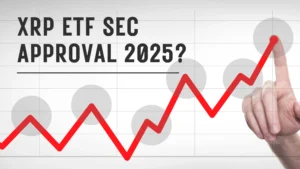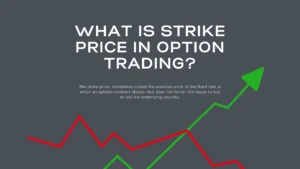The rise of blockchain technology and cryptocurrencies has revolutionized how we think about finance, ownership, and digital assets. However, creating a cryptocurrency or a digital token has traditionally been seen as a complex task, requiring advanced programming skills and a deep understanding of blockchain development. However, the advent of token makers has simplified this process, allowing anyone to create and deploy their own tokens without technical expertise. This article explores the concept of token makers, their functionalities, and their impact on the token creation landscape
Understanding Token Makers
Token makers are specialized tools or platforms that enable the creation of crypto tokens without the need for coding skills. They offer user-friendly interfaces that guide users through the process of designing and deploying tokens on various blockchain networks. These platforms automate the complexities involved in writing smart contracts, thereby making token creation accessible to individuals and businesses alike.
- Crypto Tokens: Digital assets used for various purposes, such as representing currency, utility, or assets on a blockchain network.
- Token Makers: Tools that simplify the creation and customization of tokens, although they may have limitations in complexity and coding control.
- Token Creation Process: Involves defining token rules and parameters through smart contracts and deploying them on a blockchain
How Token Makers Work?
Token makers typically operate on established blockchain networks like Ethereum, Binance Smart Chain (BSC), or Polygon. These networks support smart contracts, which are self-executing contracts with the terms of the agreement directly written into code. Here’s a step-by-step overview of how token makers usually work:
1. Selection of Blockchain Network
Users start by choosing a blockchain network where they want their token to be deployed. Ethereum is popular due to its widespread use and robust smart contract capabilities, while Binance Smart Chain and Polygon offer lower transaction fees and faster processing times.
2. Customization of Token Parameters
Token makers allow users to define various attributes of their tokens, including:
- Token Name: The name of the token.
- Symbol: The ticker symbol for the token (e.g., BTC, ETH).
- Total Supply: The total number of tokens that will be created.
- Decimals: The number of decimal places the token can be divided into.
- Token Type: Options may include standard tokens (e.g., ERC-20 on Ethereum) or more complex variants like governance or utility tokens.
3. Setting Up Token Functionality
Depending on the platform, users may also customize token functionality:
- Minting and Burning: Rules for creating (minting) or destroying (burning) tokens.
- Transfer Restrictions: Conditions under which tokens can be transferred.
- Access Control: Who can manage the token’s functions, such as administrators or certain user roles.
4. Token Deployment
Once the parameters are set, the platform generates the token’s smart contract code and deploys it to the chosen blockchain network. This process involves interacting with the blockchain and may require a small transaction fee paid in the network’s native cryptocurrency (e.g., ETH for Ethereum).
5. Token Management and Distribution
After deployment, users can manage their tokens via the token maker’s interface or through other compatible tools. They can distribute tokens to wallets, list them on exchanges, or integrate them into applications as needed.
Benefits of Using Token Makers
1. Ease of Use
Token makers are designed to be intuitive, making it easy for anyone to create and deploy tokens without any programming skills. This accessibility democratizes the creation of digital assets and opens up opportunities for more people to participate in the blockchain economy.
2. Cost-Effectiveness
Creating a token from scratch can be expensive, requiring developers and potentially legal assistance. Token makers reduce these costs by providing a streamlined and automated process.
3. Speed
Token makers significantly reduce the time required to create and deploy tokens. What once could take weeks or months of development can now be accomplished in a matter of minutes or hours.
4. Flexibility
Users can create tokens for various purposes, from launching new cryptocurrencies to developing reward systems, digital collectibles, or even voting mechanisms in decentralized applications (dApps).
Exploring Different Types of Tokens in Blockchain
Tokens are crucial components in the blockchain ecosystem, serving as versatile digital assets for various applications. They can represent everything from utility in decentralized applications to ownership of real-world assets. Here’s a comprehensive overview of the different types of tokens and their roles within blockchain technology.
1. Utility Tokens
Utility tokens are designed to provide users with access to a product or service within a blockchain-based ecosystem. They are the most common type of token and are often used to facilitate interactions within decentralized applications (DApps). These tokens are not intended for investment purposes but rather for accessing features or services within a platform.
Key Characteristics:
- Functional Use: Used for paying transaction fees, gaining access to specific services, or participating in network activities.
- Examples: Ether (ETH) is used on the Ethereum network for transaction fees and smart contract execution; Filecoin (FIL) grants access to decentralized storage services.
Applications: Utility tokens are integral to DApps, enabling various functionalities such as accessing content, voting on platform decisions, or receiving rewards for contributions to the network.
2. Security Tokens
Security tokens represent ownership in real-world financial instruments like stocks, bonds, or real estate and are subject to regulatory oversight. They offer holders rights similar to traditional securities, including dividends, profit sharing, and voting rights. Security tokens are often used to raise capital in a regulated manner through Security Token Offerings (STOs).
Key Characteristics:
- Regulated: Must comply with securities laws and regulations.
- Ownership Rights: Provide legal claims on assets or profits and may grant voting rights.
- Examples: tZERO offers tokens representing ownership in various assets; Polymath (POLY) facilitates security token creation and management.
Applications: Security tokens are used for fractional ownership of physical assets, making them more accessible and liquid. They are also employed in regulated fundraising efforts, allowing investors to buy shares in a project or business.
3. Governance Tokens
Governance tokens empower holders to participate in the decision-making processes of a blockchain network. These tokens are essential in decentralized autonomous organizations (DAOs), where they enable token holders to vote on protocol upgrades, changes, or other governance proposals.
Key Characteristics:
- Voting Power: Allow holders to influence decisions regarding network protocols and upgrades.
- Decentralized Control: Ensure that governance is community-driven rather than controlled by a central authority.
- Examples: Uniswap (UNI) lets holders vote on changes to the Uniswap protocol; Compound (COMP) enables users to participate in the governance of the Compound protocol.
Applications: Governance tokens are crucial for maintaining decentralized control over blockchain projects, allowing the community to have a say in the network’s evolution and management.
4. Payment/Currency Tokens
Payment or currency tokens function as digital forms of money within blockchain networks. They are used for transactions, storing value, or serving as units of account. These tokens aim to provide a decentralized alternative to traditional currencies, enabling quick and cost-effective transactions across borders.
Key Characteristics:
- Medium of Exchange: Used to buy goods and services or transfer value.
- Store of Value: Can be held as investments, similar to traditional currencies.
- Examples: Bitcoin (BTC) is the original cryptocurrency used for payments and as a store of value; Litecoin (LTC) offers faster transactions with lower fees.
Applications: Payment tokens are accepted by merchants and service providers worldwide and are often used for remittances due to their lower fees and faster settlement times compared to traditional banking systems.
5. Non-Fungible Tokens (NFTs)
Non-fungible tokens (NFTs) represent unique digital assets that cannot be replaced or exchanged on a one-to-one basis with other tokens. Each NFT has distinct attributes, making them valuable for representing ownership of rare or limited-edition items such as digital art, collectibles, or in-game items.
Key Characteristics:
- Uniqueness: Each NFT has unique properties and ownership records.
- Indivisibility: Cannot be divided into smaller units.
- Examples: CryptoPunks are unique digital art pieces on Ethereum; Decentraland (MANA) represents ownership of virtual land.
Applications: NFTs are popular in the digital art world, allowing artists to sell their creations with verifiable ownership. They are also used for in-game assets, virtual real estate, and collectibles.
6. Stablecoins
Stablecoins are designed to maintain a stable value by being pegged to a reserve asset such as fiat currency or commodities. They offer the benefits of blockchain technology while minimizing the volatility associated with other cryptocurrencies. This makes them suitable for everyday transactions and as a store of value.
Key Characteristics:
- Price Stability: Pegged to assets like USD or gold.
- Collateralized: Backed by reserves held by the issuing entity or managed through algorithms.
- Examples: Tether (USDT) is pegged to the US dollar; Dai (DAI) is an algorithmic stablecoin maintained by MakerDAO.
Applications: Stablecoins provide stability for trading pairs on cryptocurrency exchanges and are used for remittances and DeFi applications, offering a stable medium of exchange in a volatile market.
7. Asset-Backed Tokens
Asset-backed tokens represent digital ownership of real-world assets such as real estate, commodities, or precious metals. They allow for the fractionalization and digitization of physical assets, making them more accessible and liquid on blockchain platforms.
Key Characteristics:
- Physical Backing: Each token corresponds to a real-world asset.
- Fractional Ownership: Enables ownership of parts of expensive or illiquid assets.
- Examples: Tether Gold (XAUT) represents ownership of physical gold; RealT tokens represent ownership of real estate properties.
Applications: Asset-backed tokens facilitate the trading of physical assets on digital platforms, providing transparency and liquidity. They are particularly useful in sectors like real estate and commodities, where traditional ownership models can be cumbersome and illiquid.
Popular Token Maker Platforms
Creating your own cryptocurrency token has become more accessible with the advent of token maker platforms. These tools simplify the token creation process, allowing individuals and businesses to issue tokens without needing extensive programming knowledge. Here, we’ll explore six popular token maker platforms that can help you bring your token project to life.
TokenMint by Horizen
TokenMint simplifies tokenization with tools for creating and managing both fungible and non-fungible tokens. It emphasizes security and compliance, making it a reliable choice for token creators. The platform offers a user-friendly interface for easy token management.
Ideal For: Those needing secure and compliant token creation solutions.
MyWish
MyWish offers smart contract solutions including token issuance across various blockchains. It provides automation tools for managing tokens effectively, supporting Ethereum, Binance Smart Chain, Tron, and more.
Ideal For: Users requiring comprehensive smart contract automation for token management.
Mintable
Mintable focuses on creating and managing non-fungible tokens (NFTs) with a user-friendly interface and integrated marketplace for trading. It simplifies the process of NFT creation and management.
Ideal For: Artists and businesses entering the NFT market with minimal technical barriers.
Moralis
Moralis offers a robust platform for blockchain development, including token creation, with powerful API and server infrastructure. It supports various token types and provides real-time updates and monitoring.
Ideal For: Developers needing a scalable platform for token creation and dApp integration.
TokenSoft
TokenSoft specializes in creating compliant security tokens, providing tools for issuance and regulatory compliance. It emphasizes security and regulatory standards in token creation.
Ideal For: Companies requiring compliant security token creation and management.
DappRadar
DappRadar offers tools for creating, analyzing, and integrating tokens with decentralized applications (dApps), along with comprehensive analytics for token performance. It supports real-time tracking and integration with various dApps.
Ideal For: Developers and businesses looking to integrate tokens with dApps while leveraging analytical insights.
Choosing the Right Token Maker Platform
When selecting a token maker platform, consider:
- Compatibility: Ensure compatibility with your chosen blockchain network.
- Usability: Look for an intuitive interface and user-friendly features.
- Functionality: Evaluate the platform’s tools for customization and automation.
- Security: Prioritize platforms that offer robust security measures.
- Cost: Consider pricing structures and fees associated with token creation and deployment.
Use Cases for Custom Tokens
Custom tokens can be used in a variety of ways, including:
- Fundraising and Crowdsales: Launching Initial Coin Offerings (ICOs) or Security Token Offerings (STOs) to raise capital.
- Loyalty Programs: Creating tokens that can be redeemed for rewards or discounts.
- Digital Assets and Collectibles: Issuing unique digital items, such as NFTs, that can be traded or collected.
- Governance: Implementing voting systems in decentralized organizations where tokens represent voting power.
Conclusion
Token makers represent a significant step forward in making blockchain technology accessible to a broader audience. By eliminating the need for coding skills and simplifying the token creation process, these platforms empower individuals and organizations to leverage blockchain for a wide range of applications. Whether you’re looking to launch a new cryptocurrency, create a digital asset, or implement a token-based reward system, token makers provide the tools you need to turn your ideas into reality.
As blockchain technology continues to evolve, we can expect token makers to become even more sophisticated, offering more features and greater integration with other blockchain services. This trend will likely further lower the barriers to entry, enabling more innovation and participation in the growing digital economy.




